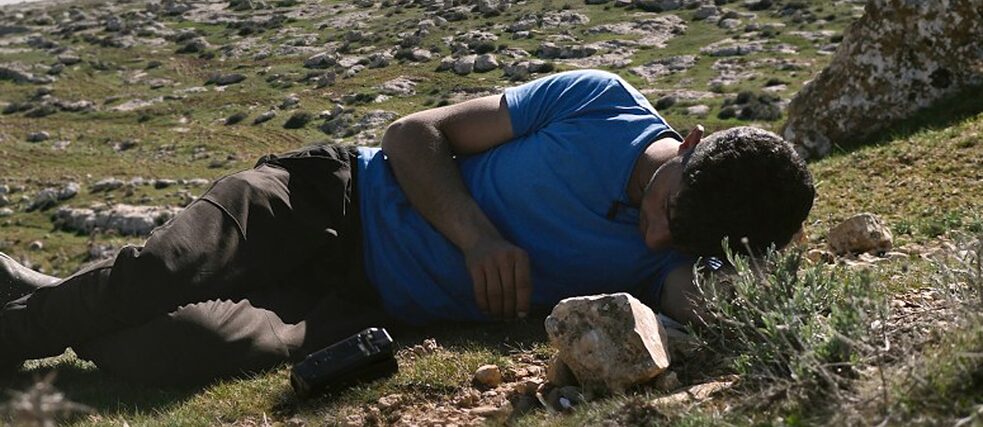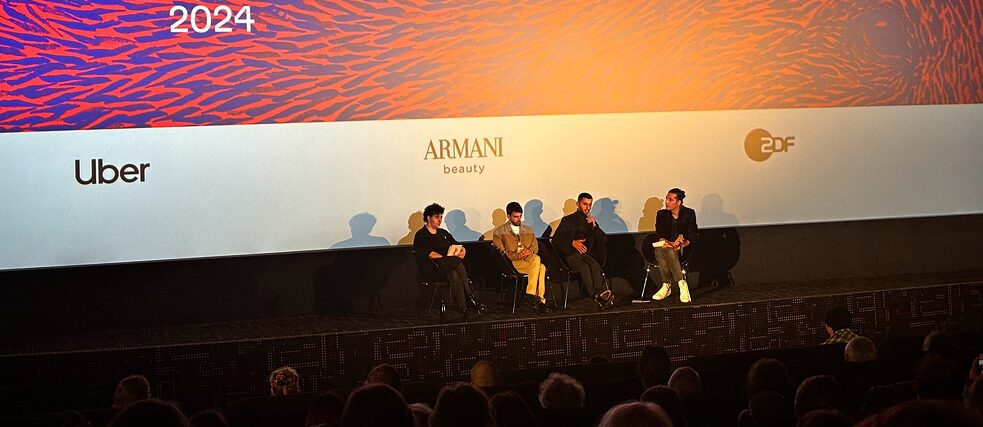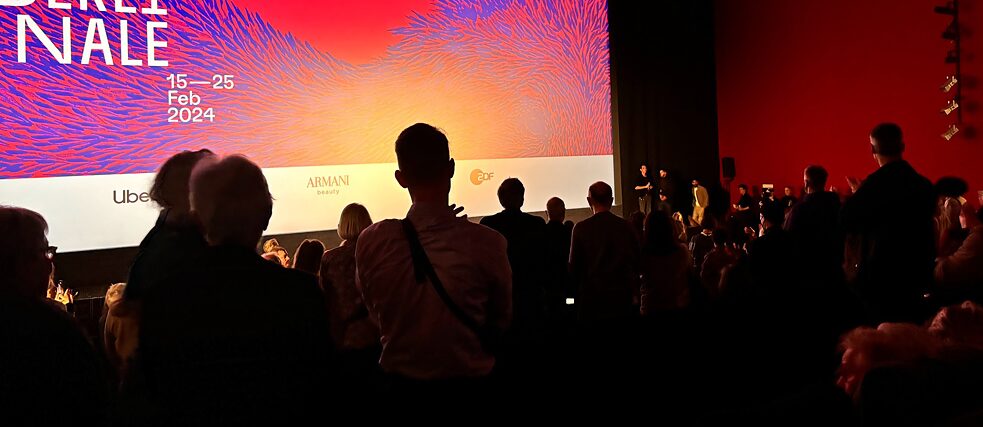Berlinale Bloggers 2024
“This is Not a Documentary about the Past”

A crisis is unfolding in Palestine. No Other Land, a documentary from Palestine, captures scenes from Israel’s ongoing occupation and the present day genocide in Palestine. Premiering at the 74th Berlinale and included in the Panorama programme, the film received a standing ovation after its screening.
Basel Adra, a Palestinian activist from the community of Masafer Yatta in the West Bank, has been resisting Israel's occupation since he was a child. He met Yuval Abraham, an Israeli journalist, who supported Basel's cause. This film is a collaboration by Basel, Yuval, and two other filmmakers, Hamdan Ballal and Rachel Szor, towards the aim of seeking justice. Below is a summary of the Q&A session following the screening of the film.
How did the process of making No Other Land begin? What challenges did you face?
Basel: For five years, we wrote articles and documented things as journalists in Masafer Yatta. Then we felt the need to do more than journalism, by making a documentary film.
Yuval: As you can see in the film, there were many challenges we had to face. Rachel and I are free; we live under civilian law, and we have freedom of movement. Basel and Hamdan do not. They live under military occupation. They couldn't visit us. So we did most of the editing process in Masafer Yatta.
The military invaded Basel's house twice, taking our equipment, cameras, and computers. This did not only happen during the filming process; Masafer Yatta is being demolished as we speak.
 Frage-und-Antwort-Runde im Anschluss an die Filmvorführung mit Basel Adra und Yuval Abraham auf der 74. Berlinale. | © Goethe-Institut Indonesien / Permata Adinda
Frage-und-Antwort-Runde im Anschluss an die Filmvorführung mit Basel Adra und Yuval Abraham auf der 74. Berlinale. | © Goethe-Institut Indonesien / Permata Adinda
Basel: We have spoken through social media. We have written articles. We wanted to reach a wider audience, to put pressure on Western governments that have been sending military aid and funding to Israel; to seek a political solution.
Yuval: I think cinema allows us to capture ongoing moments of violence and weave them into a clear narrative so that people can see that these events do not happen randomly. Violence against Palestinians has been normalised, including in Gaza. There is an impression that the lives of Israelis are more valuable than the lives of Palestinians for Western audiences and media. For me, this film attempts to challenge that.
With the conflict still ongoing, how did you as filmmakers and activists decide when to start and end this project?
Basel: It was very difficult to determine the right time to end this film. This documentary does not document something that has happened, but it tells a story that is ongoing.
As you can see in the film, the situation continues to get worse. On 13 October, I filmed my cousin being shot by a settler. I never imagined capturing such a moment on camera.
What can we do as an audience after watching this film?
Yuval: We are aware that in Germany, the word "apartheid" is still considered controversial. But for me, as an Israeli citizen, there is no more accurate term to describe it. For example, Basel and I are both under the control of the Israeli government. Our identity cards are both issued by the Israeli government. But I have the right to vote, and Basel does not. I can come here with an airport 20 minutes away from home. Basel, a Palestinian, has no airport. It took him 40 hours to come here, to meet all of you. We, two filmmakers, are both the same age; I am free and Basel is not.
My family was deeply affected by the Holocaust. My grandmother was born in Libya, under Italian fascist rule, and my grandmother's family in Romania and Hungary were killed under the Holocaust regime. As an Israeli with such a background, I want to say to the German people: Do not use the guilt you have from World War II by attacking Basel's family; by not calling for a ceasefire in Gaza; by supporting a war that has killed 12–13 thousand children. If this is a translation of the guilt you feel because of World War II, I do not want that guilt.
 Standing Ovations der Zuschauer nach der Vorführung des Films No Other Land. | © Goethe-Institut Indonesien / Permata Adinda
Standing Ovations der Zuschauer nach der Vorführung des Films No Other Land. | © Goethe-Institut Indonesien / Permata Adinda